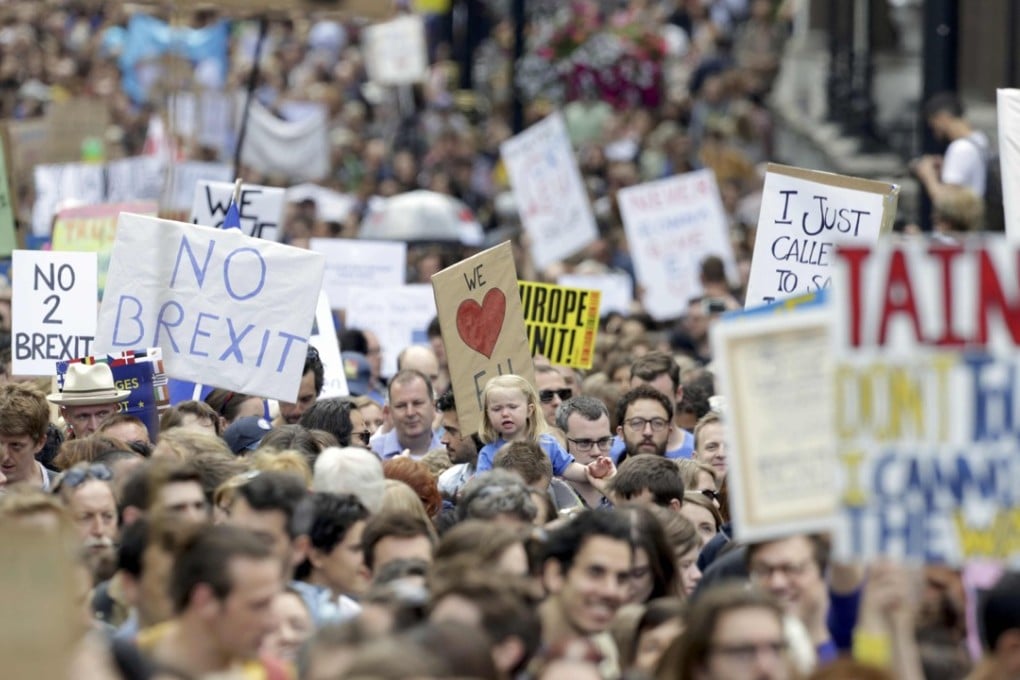Inside Out | The day is coming for Britain to pay the price for the temper tantrum it called a referendum
- Britain’s parliament is expected to put Theresa May’s Brexit deal to the vote
- Every possible route out of the Tuesday parliamentary bloodbath seems awful

Thirty months ago, in the surreal and depressing wake of the June 23, 2016 Brexit referendum, I wrote here in the South China Morning Post about the “naive craziness that has exploded across the UK”, and “a million mad questions” the Brexit vote has aroused.
Now, 30 months later, over a weekend during which a majority of British parliamentarians seem to be set on tearing away as much of their own flesh as possible – and ahead of a Tuesday vote in which the hapless and dutiful Theresa May throws her tortuously forged Brexit deal under a Parliamentary bus – I revisit those markers to reconsider whether as much masochistic harm has been inflicted as I feared.
First marker: that the decision to hold a Brexit referendum was the hopeless symptom of a vicious, internecine leadership battle for the soul of the ruling Conservative Party that resolves nothing – neither the intractable rift in the Conservative Party, nor Britain’s always stressful relationship with Brussels.
Two years on, I rest my case. Since David Cameron fell quickly on his sword, the improbable May has limped dutifully forward, aware that as soon as the unloved and inevitably flawed separation deal is done, she will be cast aside as the true pretenders to power – Boris Johnson, Joseph Rees-Mogg, Michael Gove et al – resume their self-obsessed warfare, still seemingly unconcerned at the harm done to the millions of British people.
Every possible route out of Tuesday’s parliamentary bloodbath seems awful. If the deal is trashed, then four awful options emerge: May returns to Brussels with the impossible task of seeking further concessions; she throws in the towel, tasking a new Tory leader to take a new “minimalist” plan back to Brussels; the government calls a fresh referendum, which must presumably include the options not just of accepting or rejecting the May deal, but of staying in Europe – opening a Pandora’s Box even larger than that opened by the original referendum; or calling a general election – which in the present mood would likely return a Corbyn Labour government.
